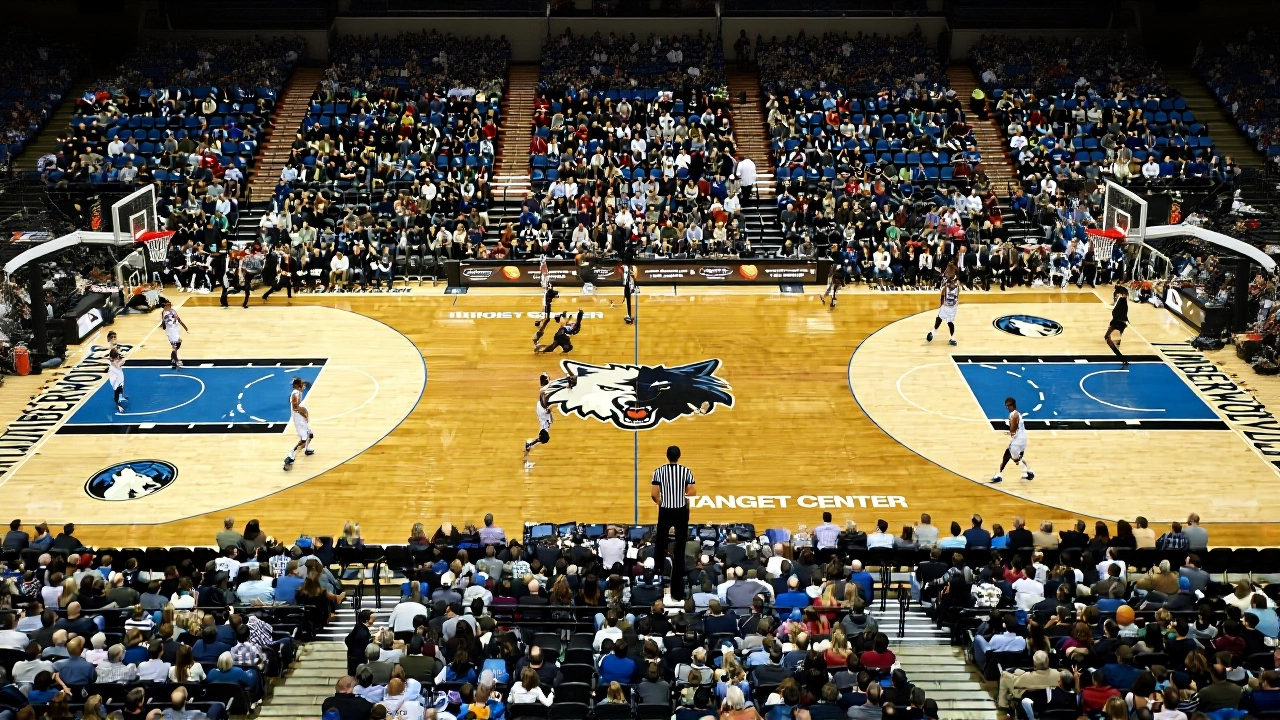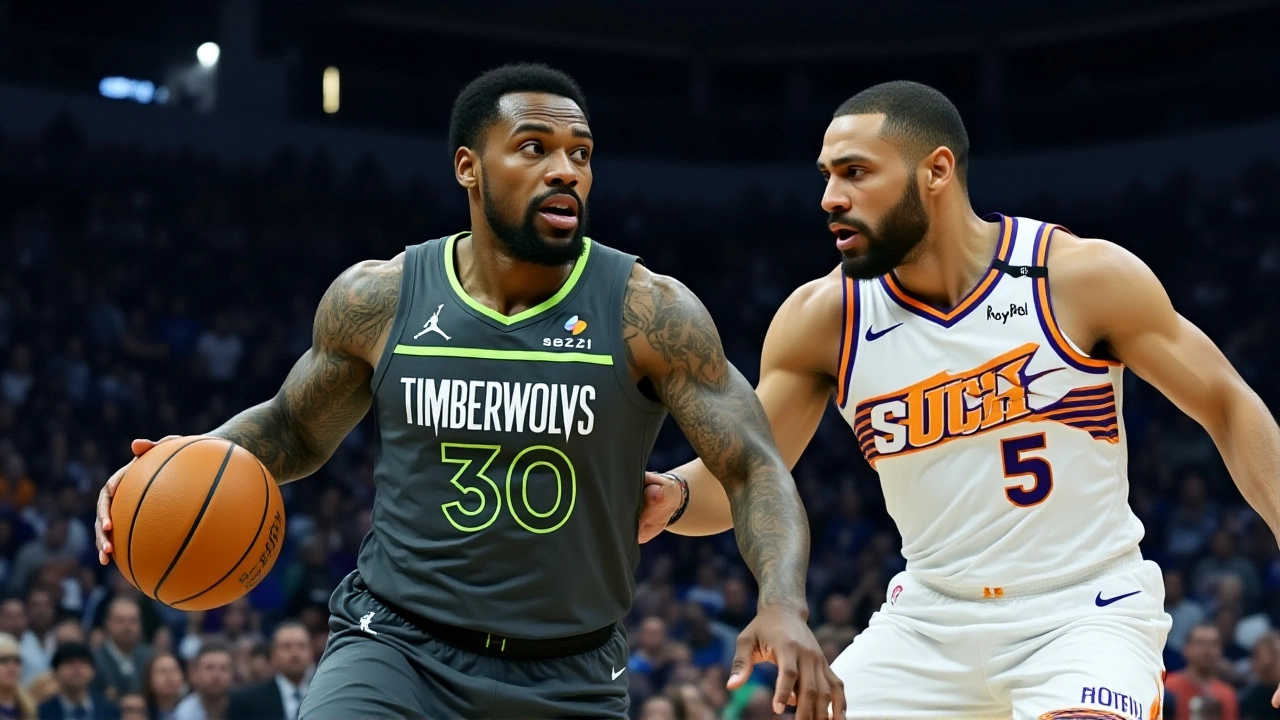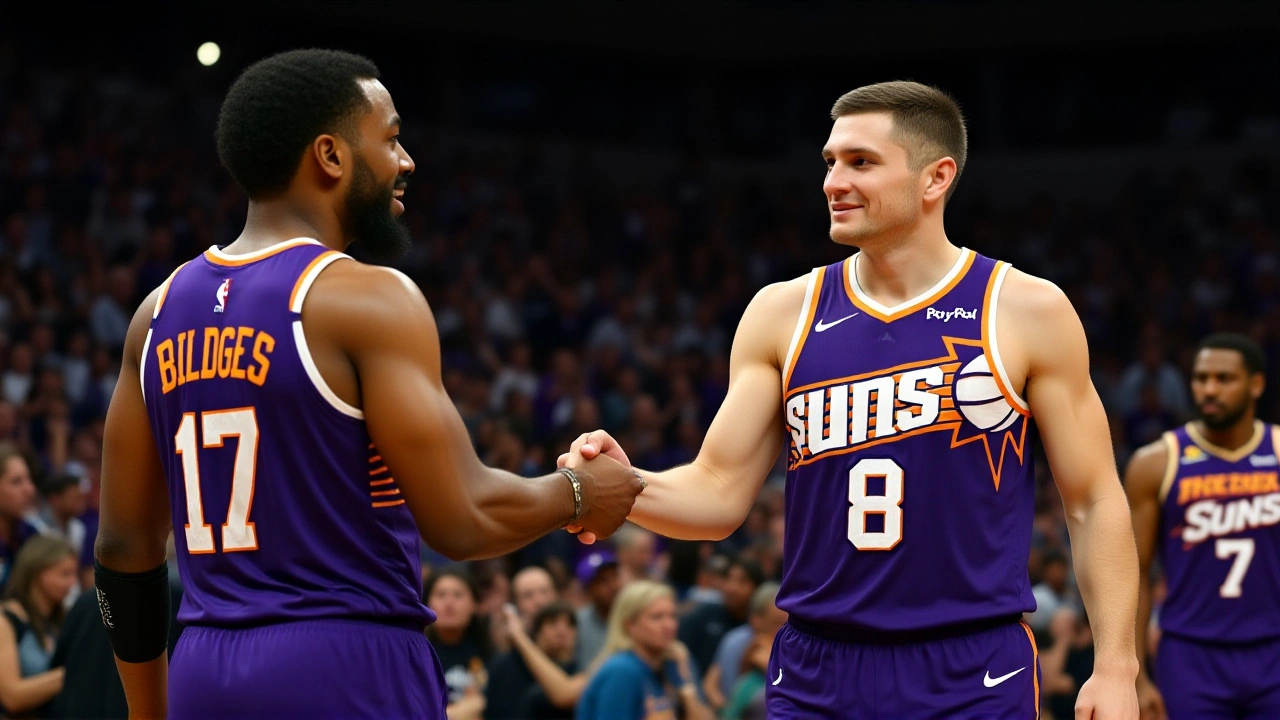The Phoenix Suns are without their most reliable three-point shooter as Grayson Allen, 28, sits out his third consecutive game with a right quadriceps contusion, this time missing Friday’s NBA Cup group stage matchup Footprint Center in Phoenix, Arizona against the Minnesota Timberwolves. The injury, suffered during a drive to the basket at 8:27 p.m. EST on November 14 against the Indiana Pacers, isn’t structural—but it’s still keeping one of the league’s most efficient shooters off the floor. And for a team that entered the season with championship hopes, that’s a problem.
How the Injury Happened—and Why It’s More Than a Bruise
Allen wasn’t just playing well before the injury—he was firing on all cylinders. In his final 12 minutes against the Pacers, he dropped 12 points on 5-of-6 shooting, including 1-of-2 from deep. He wasn’t just scoring; he was creating space. Then, on a quick crossover into the paint, he planted his right leg and immediately clutched his quad. He didn’t fall. He didn’t scream. He just limped off, and the arena went quiet. The Suns medical staff ran an MRI the next day. No tears. No strains. Just a deep, stubborn contusion. But here’s the twist: quadriceps contusions in NBA players don’t always heal on a schedule. They’re like a bruise that refuses to fade—especially when you’re running up and down the court 90 times a night.
The Offense Without Allen: A Shooting Gap
Allen averages 3.9 three-pointers per game this season—tied for seventh among guards in the league. When he’s on the floor, the Suns shoot 37.8% from deep. When he’s off? It drops to 34.2%. That’s not just a stat. That’s a collapse in spacing. Opponents can now sag into the paint, knowing the threat of a catch-and-shoot from the corner is gone. Without him, Devin Booker, who’s averaging 27.8 points, is forced to carry more of the offensive load. And while Booker can do that, it’s not sustainable. The Suns’ bench has been thin all season. Now, with Jalen Green (hamstring) and rookie Rasheer Fleming (ankle) also out, the burden falls to Collin Gillespie, Ryan Dunn, and Isaiah Livers. None of them are known for their shooting. Gillespie, at 25, is a playmaker, not a spot-up threat. Dunn? He’s a defensive specialist. Livers? He’s been out of the rotation for weeks.
The Timberwolves’ Side: A Mixed Bag
The Minnesota Timberwolves, meanwhile, enter the game at 10-5 after a 120-104 win over the Washington Wizards on Wednesday. Julius Randle (25.0 ppg, 7.5 rpg) and Anthony Edwards (25.2 ppg) are carrying the load. But they’re not without their own issues. Forward Jaden McDaniels, 25, is listed as uncertain with an unspecified injury. He’s their best perimeter defender and a 1.8 three-point shooter who stretches the floor. If he’s out, the Suns’ offense might get even more room to operate. But coach Chris Finch will likely shift Mike Conley, 36, into a more aggressive role, and hope Joe Ingles, 36, can handle the minutes despite his left groin strain.

What This Means for the Suns’ Season
This isn’t just about one game. It’s about rhythm. The Suns were supposed to be one of the league’s most lethal offenses—Booker, Bradley Beal, and Allen forming a deadly trio of shooters. But Beal’s been inconsistent since his arrival in 2023, and now Allen’s out. The team’s offense looks disjointed. They’re forcing drives. They’re settling for mid-range jumpers. And it’s costing them. Their net rating has dropped 7.2 points per 100 possessions since Allen went down. That’s the difference between being a top-5 offense and a middle-of-the-pack one.
What’s Next? A Potential Return Against Memphis
Team sources tell reporters Allen could return for the November 24 game against the Memphis Grizzlies at FedExForum in Memphis, Tennessee. But that’s not guaranteed. The medical staff is being cautious—rightly so. Allen’s had minor quad issues before. They don’t want a setback. For now, he’s day-to-day. No timeline. No guarantee. Just hope.

Behind the Scenes: The Suns’ Injury Philosophy
The Suns have learned the hard way. In 2022, veteran Deandre Ayton returned too soon from a calf strain and re-injured it. In 2023, Kevin Durant missed 14 games with a calf strain after rushing back. Now, with Allen, they’re doing the opposite. They’re sitting him. They’re prioritizing long-term health over short-term wins. That’s a sign of maturity. But it’s also a sign of desperation. They know if they lose Allen for more than a month, their title hopes are in serious trouble.
Frequently Asked Questions
How does Grayson Allen’s absence affect the Suns’ offensive strategy?
Without Allen, the Suns lose their most consistent three-point threat, dropping their team three-point percentage from 37.8% to 34.2%. Opponents can now collapse on Devin Booker and Bradley Beal, knowing there’s less spacing. The bench lacks shooters, forcing more isolation plays and mid-range jumpers—less efficient shots that slow the pace and increase turnovers.
Why is a quadriceps contusion more serious than it sounds?
Unlike a strain or tear, a contusion is a deep bruise in the muscle that causes inflammation and stiffness. NBA players can’t afford to play through it—every sprint, jump, or cut aggravates the tissue. Even without structural damage, the pain and reduced range of motion make explosive movements dangerous. Recovery takes 7–14 days, and rushing back risks re-injury.
Who are the main players stepping up in Allen’s absence?
Collin Gillespie is likely starting at point guard alongside Booker, while Ryan Dunn and Isaiah Livers are seeing increased minutes. Neither are shooters—Dunn is a defensive stopper, and Livers has been out of rotation. The Suns are relying more on Booker’s isolation play and Beal’s mid-range game, which isn’t sustainable over a long stretch.
Could the Timberwolves’ injury situation help the Suns?
Possibly. If Jaden McDaniels misses the game, Minnesota loses their best perimeter defender and three-point threat, which could open driving lanes for Booker and Beal. But the Timberwolves still have Anthony Edwards and Julius Randle, who can exploit any defensive lapses. The Suns’ lack of shooting might neutralize any advantage.
What’s the timeline for Grayson Allen’s return?
The Suns haven’t given a firm date. He’s officially day-to-day, but sources suggest a possible return against the Memphis Grizzlies on November 24. That’s just a hope, not a guarantee. The medical staff is prioritizing full recovery over rushing him back, especially after past injuries to veterans like Kevin Durant.
How does this injury impact the Suns’ playoff chances?
It’s a major setback. The Suns were built to be a top-tier offensive team with three elite shooters. Losing Allen for even a few weeks disrupts their chemistry and forces them into less efficient play. If he’s out past the All-Star break, their championship window narrows significantly. They need him healthy to compete with teams like the Nuggets and Celtics.

